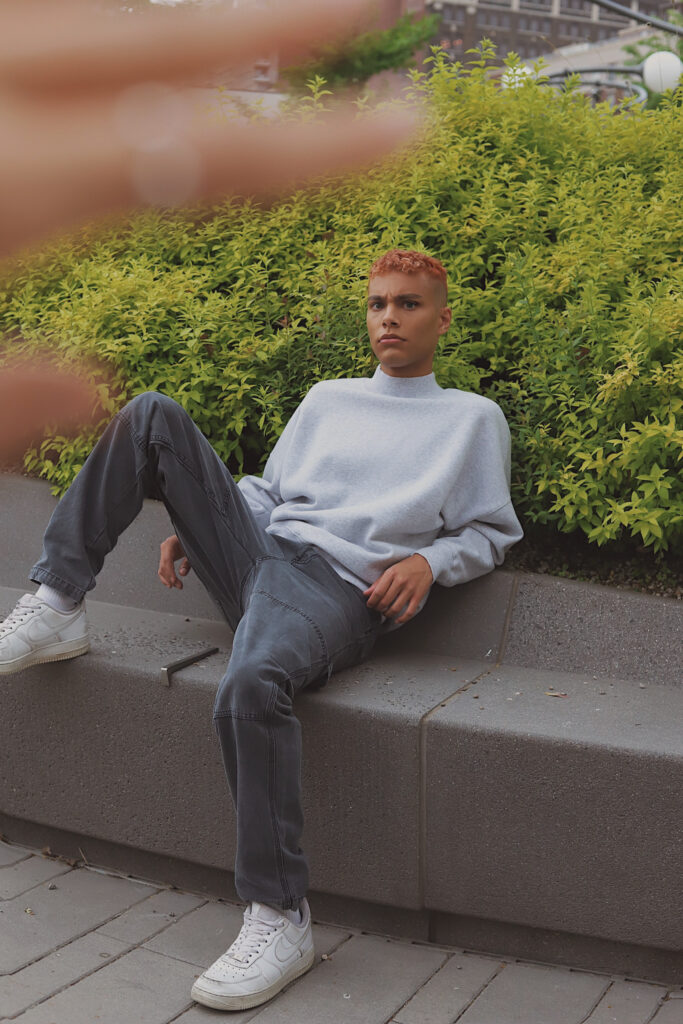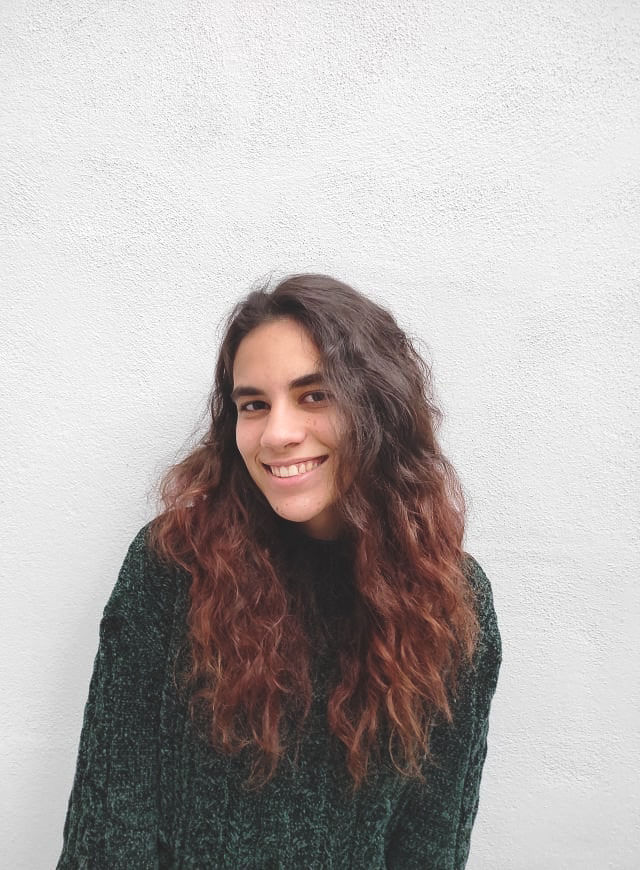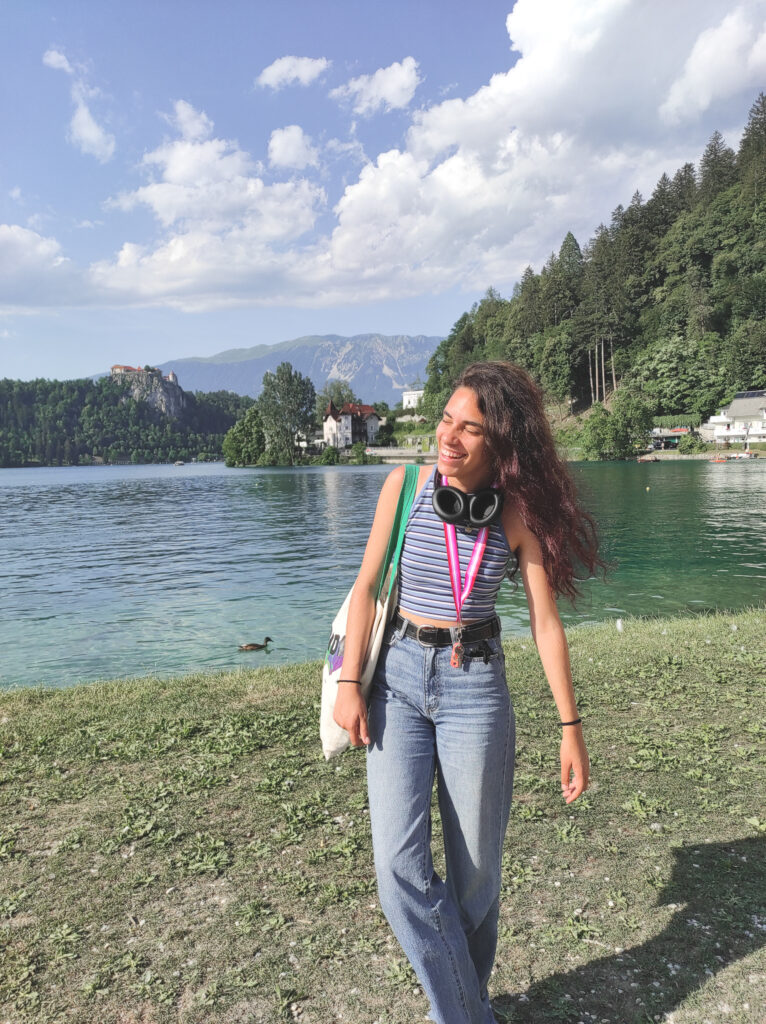Antonella Bugeja. Photo by: Maria Tušek (Vogue Xchange at Prinjolata)
Written by Sintija Krastenberga | Published on August 12, 2022
Today we celebrate the International Youth Day. There is a lot of hope and also pressure that the new generation will save the planet… But can they?
It is the responsibility of policy makers, industry, and local communities to provide youth with the support and the tools they might need to face the global challenges of this century.
Antonella Bugeja (21), a Maltese activist that fights for social and climate justice head on, tells YSG what the youth needs at this time – from us and themselves.
First – what are we celebrating exactly?
The first time the International Youth Day was celebrated was in the year 2000, initiated by the UN. The age range is in focus is 15 – 24 year old’s. In broad terms, it is a big chunk of the so-called Generation Z.
You know, kids who made Tik Tok videos a normal thing and denim and vintage clothing trending again.
The day is celebrated to acknowledge the contribution that youngsters make in our education systems, employment, and socio-cultural paradigms.
While it all sounds nice and pretty, does youth actually make this contribution besides changing fashion trends and making us addicted to our phones in a new way?
Well, it seems like they want to – if only we would let them.

Age discrimination and other challenges for youth in the 21st century
The UN presents a theme for this year – “ageism”, meaning, social discrimination based on one’s age.
It can have impact on various areas of one’s life such as employment, political participation, and health.
It is said that ageism prevents policy makers in developing regulations and social systems that would support specific age groups in integrating and accessing opportunities.
Well, yeah. That is how social discrimination works. What else?
While mostly attributed to older people, youngsters suffer from it too, making it one of the most challenging aspects in the workforce.
It is said that that older generations often neglect younger workers and the potential contributions that they could make due to their lack of experience and their age, even if they are educated and qualified.
At the same time, it is more challenging for them to actually get a job precisely because they do not have the experience just yet.
If that’s true, it’s kind of a sucky situation.
Youngsters get less opportunity to prove themselves, earn less and are more likely to rely on their care takers for additional support or work part-time to cover themselves.
Which means that in turn, it divides their attention and energy that could be used to indeed acquire the necessary skills for their careers.
It’s a catch 22.
You might think – boo hoo, poor kids, let them just suck it up and go on with it. That’s how we all got through challenges… right?
Well, not exactly.
The thing is, this generation is confronted with a world and issues that create a whole new context for living a decent life.
Just to name a few things:
Growing up with internet and social media, having a completely new way of relating to each other and being a part of a society.
Dissolution of global boundaries, and therefore, access to worldwide information and travel.
Destigmatizing mental health, meaning, being actually allowed to talk about it and embrace it instead of showing it deep into the unconscious (you know what I am talking about).
And then a global pandemic where the whole planet just shut down, keeping them stuck in their rooms for nearly 2 years while they were supposed to go there, enjoy and learn about life.
Oh yeah – and, of course, our planet slowly cooking up.
And all of it at the same time. Marvelous, isn’t it?
Yes, other generations had problems too – wars, disease, social injustice, technological developments and change that comes with it.
But we got to admit that now things are moving at a much faster pace. Our monkey brain is under immense pressure to adapt and grow, making it an unprecedented time in human history.
Advice of just ‘’suck it up’’ won’t do if you want to leave the future in their hands and have a chance of humanity not only surviving but also trying to leave it better than it is now.
So, what can be done?
To find that out I spoke with Antonella Bugeja.
I first met her at Prinjolata: Malta’s First Sustainable Fashion show earlier this year, where she contributed as one of the models. Just after a little word exchange I could hear her passion for matters such as social justice and sustainability.
Months later, after which I have been actively following her activity with amazement how one can have such a spark and drive to fight. Who said that youth doesn’t care?
Interview with Antonella
Antonella is a medical student, about to start her master’s degree in fall.
Only 21 years old, she is showing exceptional drive to learn about the world, human consciousness, social justice matters and more.
She is an LGBTQ+ and climate activist and give talks and presentations on these matters from places like local social projects to EU Parliament in Brussels.
Since the UN theme for this year is ageism, I wondered what is her look on this.
How do you see this issue of youth discrimination?
“It is very prevalent. There is some initiative to get younger people heard, but in general, in my opinion, most adults especially in governments see youth as to not be taken seriously.”

“For example, I’ve taken a part in a lot of projects, one of them being #StandForSomething funded by European parliament, with the purpose of supporting young people and give them voice.
But even there, despite having had its successful moments and some supervisors who cared to truly listen and help, me and others who joined from different countries felt like there were many authoritative figures involved who didn’t really care. We felt like we were not listened to. “
‘’And we were activists. If the activists are not being heard, then how would the rest of the youth be? That is a big problem‘’, she admits.
“I think in general, no matter what the age is, you’ll be more motivated to act if you are treated with respect, and that you feel like what you do matters.
That is one of the reasons why not a lot of people want to be involved in youth activism, because if you feel like that what you do is worthless, then why would they spend time on it. They would rather go and have fun and party or do anything else which would make them feel good instead.“
Why do you think is that?
“Well, on one hand I feel it is the human nature, the older we get, the wiser we think we are. And I think it is partly pride, feeling that because of our age we think that we are more, or can exert authority on people that are younger.”
“It is seen not only by age, but also in work or in university. Senior staff is harder on youngsters or lower ranks. They have more power in higher roles and so they are more likely to bully those that are in lower positions.
I think it could also be a vicious cycle, that if it happened to you, you are more likely to do that to other people.”
It sounds like it could be a structural issue, that we are used to having this kind of power or hierarchy as we grow older, which is deeply engrained in us.
“Yeah, I definitely agree with that. I think that is changing, and more young people are trying to speak up, but it takes time to have that change happen.”

When asked what could be done to change that, the answer was very clear – work together.
“I think young people should collaborate more, work together, join different organizations, and come up with some creative things to gain traction,’’ she says.
‘’There is also a stereotype that youth is all over the place, they don’t know what they want, and that they just want to party. And having different activist groups scattered around may contribute to that idea. I think that if these groups could come together, then we would be taken more seriously.’’
“If they come up with something creative and show that we are talking to people of all ages, we can make change exciting.”
Early in our interview, Antonella mentions how important it is to overall use creativity, music, and art into activism.
Artists bring in passion into these difficult and sometimes serious conversations making it more likely to have people notice and be inspired to do something, especially in the age of social media where people are overflooded with information. I could not agree more with this.
Still, Antonella continues: “But overall, I would also say to just listen. In general, we are very obsessed with what we have to say, and we don’t take time to listen to each other as we should.
So, I’d say – forget for a moment about the age and just listen to what each other has to say. I think this really can make a difference.”
To sum it up
The message is clear. There are serious problems that our youngsters are facing. And people who have authority are not particularly keen on helping, not because they did not want to, but because they may not know how.
That is why it is our responsibility to ask, listen, and then come together to support them and each other in the face of these challenges.
The world will never be the same, but we all can get a say in how it could look like.
Liked this article?
Follow us on social media for Part 2 where me and Antonella talk about climate anxiety – how youngsters and people in general are faring and how we can collectively deal with it.
To find out about our latest articles and unique updates subscribe to our Newsletter.
Newsletter:











